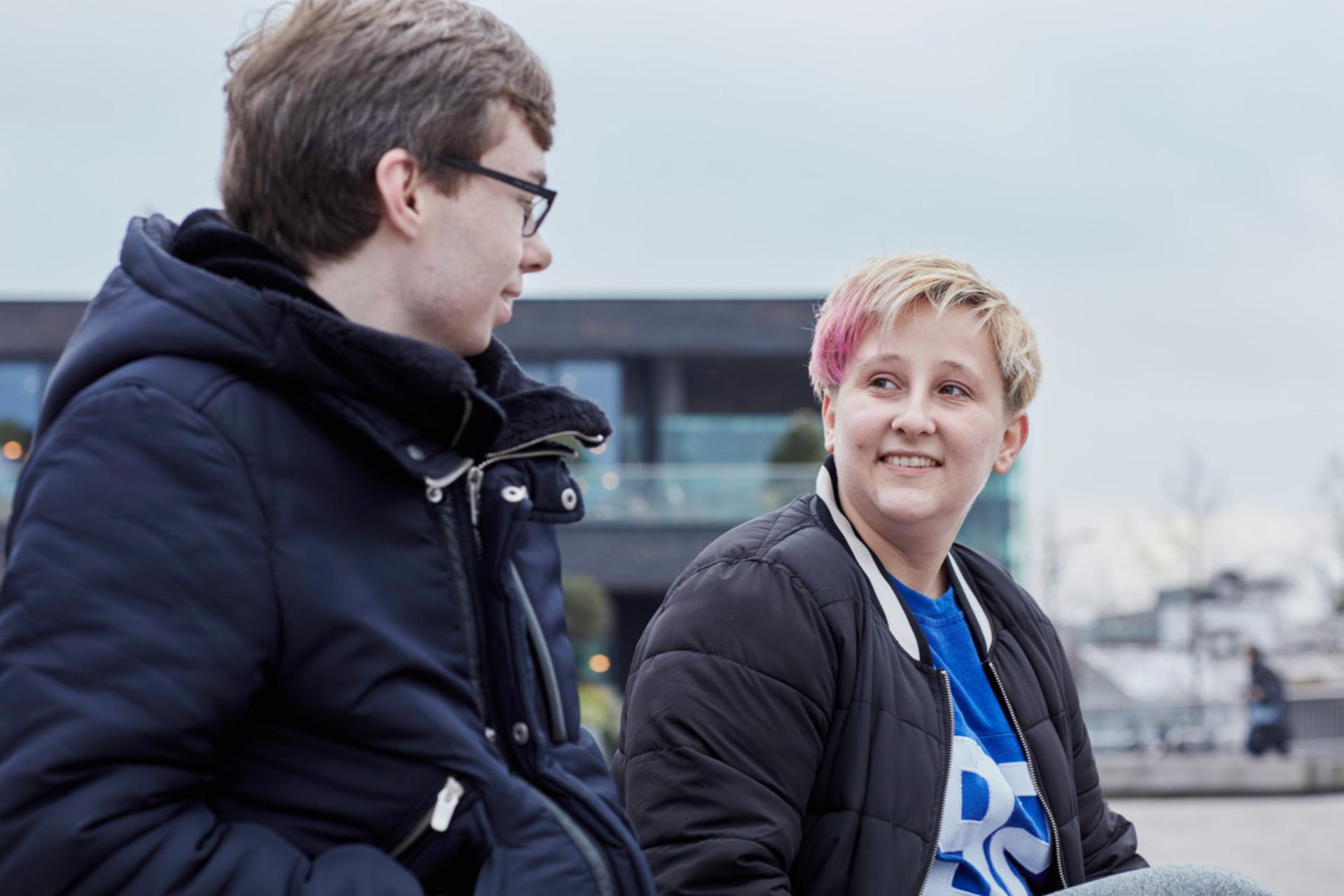Mathilde (25) and Amélie (27) are volunteers for Ton Plan à Toi, an initiative for relationship and sexuality education launched by IPPF's French Member Association, Mouvement Francais Pour Le Planning Familial. Ton Plan à Toi was set up in February 2018 to provide people living in the French region of Nouvelle-Aquitaine (6 million of them!) with skills and information that would enable them to have happy and healthy relationships and lives.
To do this, volunteers at Ton Plan à Toi conduct workshops in schools, hold trainings with professionals, and answer young people’s questions on relationships and sexuality using the chat function of the Ton Plan à Toi website.
Mathilde focuses on delivering workshops in schools while Amélie spends her time answering young people’s questions online. See what they had to say about their experiences below.
Could you tell me a bit about why relationship and sexuality education is important for you?
M: For me, education is the key to everything. When I started volunteering at Le Planning Familial I realised if I had this information in my youth, my life would have been completely different. But I didn't have information – about STIs, contraception or just consent and everything relating, like sexuality. So I thought: this is the key to end all the issues that women and girls face.
A: The goal of education for me is to establish equality between people coming from different origins, and sexuality education does this because there are environments where people don’t talk about it at all and others where they are more open – sexuality education provides a basis to everyone.
When you were growing up did you have relationship and sexuality education?
M: With the sexuality education I had access to there was a kind of hierarchy. We were all sitting while the teacher was standing in front of us and just sharing information – we didn't use our critical thinking or had our beliefs or misconceptions challenged. So that's what we're trying to do now, to challenge young people’s beliefs and stereotypes. And when they respond, we don't say 'no that's wrong' we say 'okay, why do you think that?'
A: No, in my family we talked about it pretty openly, but in school it wasn’t the case. I learned about the reproductive system, but that’s not sexuality education.
Can you tell me a bit about how you got involved in Le Planning? What was your motivation?
M: When I was living in Ireland, I got involved in the Repeal the 8th campaign and discovered I was an activist for reproductive rights. Then when I came back to my hometown I realised I should get involved in something supporting feminism – it was a few months after the #MeToo movement and I thought what I saw there was amazing, but nobody was listening to us, nothing really happened. So I thought: yes, let's volunteer at Le Planning.
A: I had an abortion when I was younger and it was difficult because – well, everything went well, and I was very well looked after, but I didn’t feel good about my decision. And then after doing some reading on it, I noticed that it’s society which has created this image of abortion, and that my choice was okay. So I started with having an abortion, then I became a feminist, and once you become a feminist a lot of things follow from that.
Amélie, what would you say are the most commonly asked questions on the Ton Plan à Toi website chat?
A: Questions about ‘the first time,’ there are a lot of them. About the fear of the first time. Young people are scared because there are a lot of expectations, a lot of anxieties – but it’s not as hard as they fear. So it’s about de-dramatising what it will be like and emphasizing the importance of consent.
Mathilde, when you hold workshops at school, are there subjects that you find more difficult to address than others?
M: I think it really depends on the subject, but things about the body are common – body hair, periods, that's difficult. Also porn comes up a lot. Like, ‘is it normal to say that, is it normal to do that?’ They are really worried.
Since you started volunteering at Ton Plan à Toi, has there been any particular moment when you had the sense that you were doing something important?
M: We had a young person who was saying homophobic things during our session so we used our techniques to not say 'no, this is so wrong ' but 'why do you think that?' At the end of the session we asked them how they felt. And he said 'I'm so lost, I don't know what to think anymore.' I felt that this was the purpose of relationship and sexuality education. We don't want them to go out thinking 'I’m totally different,’ but to challenge themselves and question their beliefs that are rooted in harmful stereotypes.
A: On the chat, we have conversations about violence – the chat allows people to speak to someone, people who otherwise wouldn't have this possibility. These are difficult situations, but I’m happy that the chat allows these people to at least find somebody who they can speak with.
Interview conducted by Eimear Sparks, IPPF EN
when
country
France
Subject
Comprehensive Sex Education
Related Member Association
Mouvement Français pour le Planning Familial









